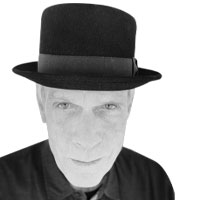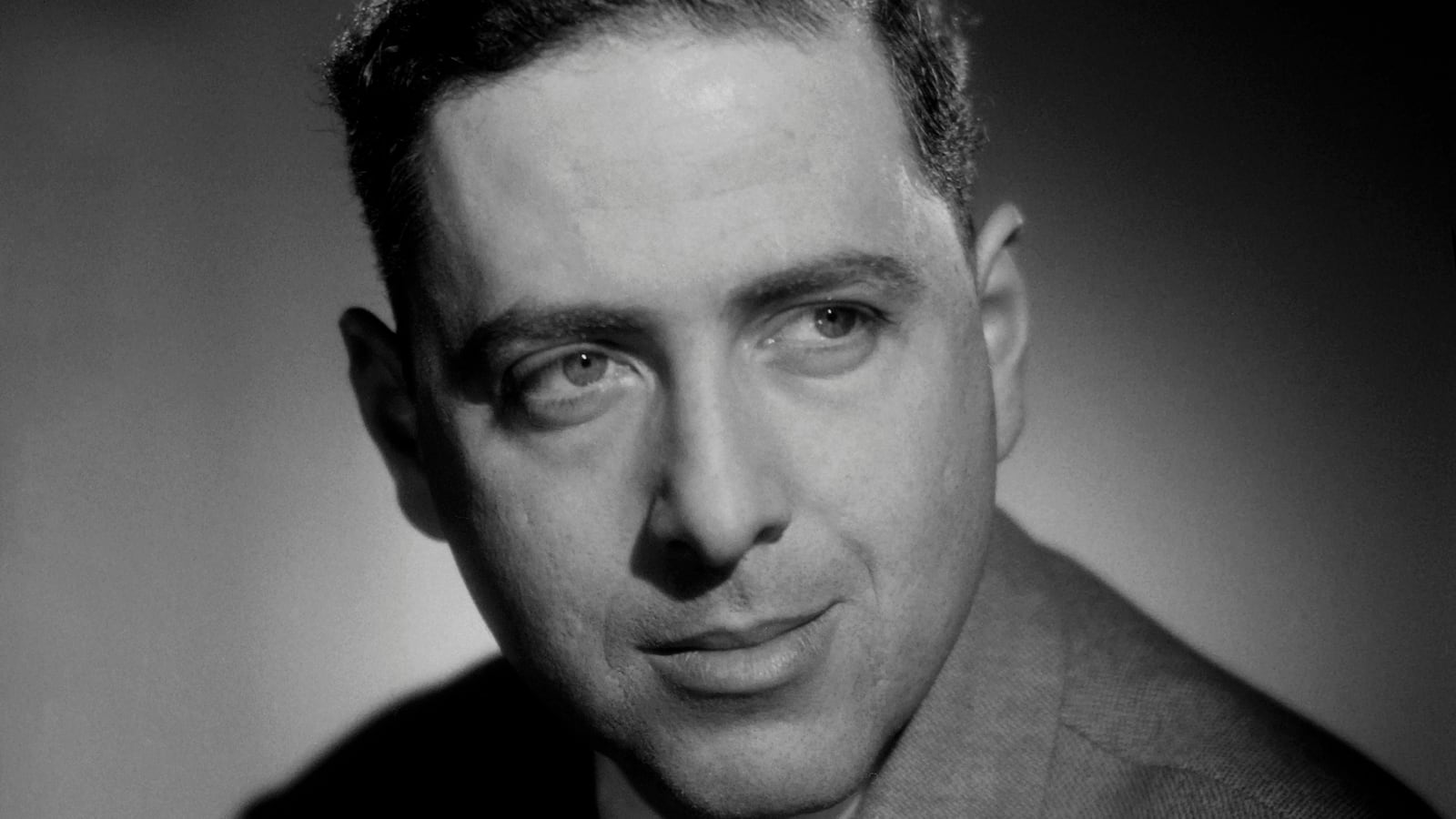No one claimed Herman Wouk was a great prose stylist. One reviewer described his first two books as “wobbly and unimpressive,” and later critics were sometimes even less kind. Norman Podhoretz likened Wouk’s writing to “a blind man trying to locate an object in an unfamiliar room.” But after winning the Pulitzer Prize in 1952 for The Caine Mutiny, Wouk reached a global audience in the millions with books, movies, plays and a pair of TV miniseries produced over an astonishing seven-decade career which came to an end with his death on Friday at the age of 103.
Wouk (pronounced woke) regarded The Caine Mutiny as his “signature work,” and indeed it incorporated what would become his trademarks—serviceable if unspectacular prose, a cast of vividly drawn characters, and intricate plotting that led to a touch of sprawl and a murky moral resolution. The novel’s ringing plausibility springs from its author’s personal experience. Set aboard a U.S. Navy destroyer-minesweeper in the Pacific during World War II—“a pile of junk” modeled on ships Wouk served on—the novel tells the story of a crew that rebels against its psychotic skipper, Philip F. Queeg. Like many of Wouk’s novels, this one contained a novelist, Tom Keefer, a villain in no small part because he reads Joyce, Eliot and other high modernists who Wouk disdained. Wouk was a Don Quixote man.
Herman Wouk was born on May 27, 1915 in the Bronx, where his Jewish parents, Abraham Isaac Wouk and Esther Levine, had settled after emigrating from Russia. Wouk’s maternal grandfather, the Hasidic rabbi Mendel Leib Levin, was such a traditionalist that he refused to learn English. Young Herman, who would become an ardent student of the Talmud, learned English, as well as Hebrew and Yiddish.
As an undergraduate at Columbia University, Wouk worked on The Spectator, the student newspaper, and edited The Jester, the student humor magazine. But after graduating in 1934 he did not immediately pursue a literary career. Instead he spent several years writing gags for the comedian Fred Allen, then, as war loomed, he wrote radio spots to sell war bonds before enlisting in the U.S. Navy.
Wouk’s literary career began while he was at sea. Writing longhand, he produced Aurora Dawn, a light spoof of radio advertising, and sent it off to New York. A contract reached him when his ship was off the coast of Okinawa. The novel became a Book-of-the-Month selection—and therefore an automatic bestseller—and Wouk was on his way.
While his ship was being overhauled at the San Pedro Navy Yard in California, Wouk met a civilian personnel officer named Betty Sarah Brown. They were married less than a week after he returned from the Pacific at war’s end, and they remained married for 66 years—until she died in 2011 at age 90. After converting to Judaism, she served not only as her husband’s literary agent, but also as his sounding board. When he finished writing a chapter, he would read it aloud to her.
The year after his wife’s death, Wouk told an interviewer, “She might say, ‘I see where you’re going, but you’ve got to get rid of that one guy.’ Poof. Six months of work gone in an instant. And she was always—always—right.”
Wouk followed Caine with another hit, 1955’s Marjorie Morningstar, the story of an aspiring Jewish actress who, after a sexual fling, abandons her dreams of the stage and settles into a safe suburban marriage with a man who regards her loss of virginity as a “deformity.” The novel, an unabashedly conservative call for conformity and chastity, was made into a film starring Natalie Wood and Gene Kelly. It also landed its author on the cover of Time magazine.
His fame secure, Wouk embarked on a string of books whose variety few writers have matched, including two non-fiction books about Judaism (This Is My God and The Will to Live On ); a Jewish family saga (Inside, Outside); a novel about an aspiring novelist who hits it big, based loosely on Thomas Wolfe (Youngblood Hawke); a zippy farce about a New York press agent who runs away to the Caribbean to buy a hotel, drawn from the six years Wouk and his family spent on St. Thomas, later adapted for the stage with music and lyrics by Jimmy Buffett (Don’t Stop the Carnival); two novels built around the history of Israel (The Hope and The Glory); and a novel about the collision of big science and Congressional politics (A Hole in Texas). Wouk’s last novel, The Lawgiver, published when he was 97, is a meta-fiction about a crew making a movie about Moses. It’s made out of such 21st-century materials as emails, texts and Skype transcripts, and it features a “mulish ancient” named Herman Wouk who’s brought in as a script Doctor.
But it was his two sweeping historical novels about World War II, The Winds of War and War and Remembrance, that will, along with The Caine Mutiny, likely endure longest. The products of prodigious research, the twin novels tell their epic story about the war and the Holocaust through the Henry family, whose patriarch, “Pug” Henry, is a naval officer with an uncanny knack for turning up in places where history is being made. Some critics felt its writing failed to rise above the level of journalism, but it connected with audiences and was made into a lavish TV miniseries starring Robert Mitchum. So was its sequel. With a budget of $110 million and a running time of 30 hours, it was a ratings flop, losing more than $30 million.
One reason for the red ink may have been that Wouk won unusual concessions from ABC, stipulating that advertisements for certain products would be inappropriate on a series with a focus on the Holocaust. These products included toilet cleansers, toilet paper, personal hygiene products, fast food chains and perfume. Despite the ratings flop, Henry Kissinger called War and Remembrance “an outstanding novel and a great work of history.”
In 2008 Wouk was awarded the first Award for Lifetime Achievement in the Writing of Fiction by the Library of Congress. At the awards ceremony, which included a performance by Jimmy Buffett, Wouk donated more than 100 volumes of his journals to the library.
He is survived by two sons, Nathaniel and Joseph (a third son, Abraham, drowned in childhood), three grandchildren, and one great granddaughter.
In his final years Wouk took to wearing a straw hat and a flowing white beard that gave him the aura of an Amish elder—or a character out of the Old Testament. In 2012, Wouk agreed to answer Vanity Fair’s “Proust Questionnaire,” which asked, What is your current state of mind?
“Optimistic,” Wouk replied. “Can’t say why.”
How would you like to die?
“Not much.”






